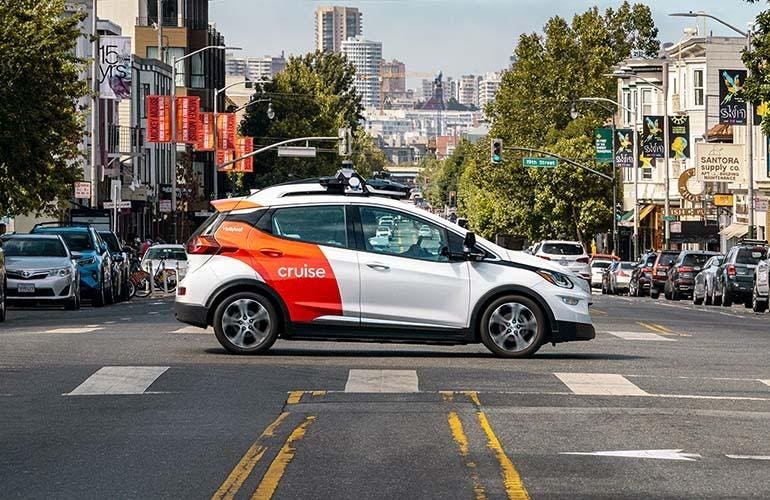Lora Kolodny and Michael Wayland reported for CNBC earlier this week that San Francisco-homed autonomous vehicle startup Cruise announced it made the decision to “pause all driverless operations” following incidents with pedestrians and the suspension of permits.
Cruise, backed by General Motors, issued a statement on LinkedIn which read in part “the most important thing for us right now is to take steps to rebuild public trust, [and] part of this involves taking a hard look inwards and at how we do work at Cruise even if it means doing things that are uncomfortable or difficult.” The company added the choice isn’t due to new incidents and the move is “the right thing to do during a period when we need to be extra vigilant when it comes to risk, relentlessly focused on safety, [and] taking steps to rebuild public trust.”
Cruise was founded in 2013 by Kyle Vogt, who also serves as chief executive officer. In addition to its San Francisco headquarters, Cruise also operates in Austin, Dallas, Houston, Phoenix, and Miami.
For her part, GM CEO Mary Barra recently said the company believes “Cruise has tremendous opportunity to grow and expand” while adding safety is a “gating factor” as they deploy vehicles in additional cities.
I share this news of Cruise temporarily ceasing operations as a postscript of sorts to my story earlier this week in which I explained why the vilification of Cruise—and of autonomous vehicles generally—ignorantly overlooks the significant accessibility benefits, particularly to non-drivers in the Blind and low vision community (myself included). The loss of Cruise, however brief it may be, may be vindicating to most people; the reality is, for many in the disability community, it also represents a loss in autonomy. The fact is, transit options are in precious supply to Blind and low vision people. To get around, we must meticulously plan our neighborly excursions as though they were Magellan’s trips around the world. Getting out and about town without resistance is very much a part of abled privilege that the majority—namely, most city leaders here in San Francisco—take for granted because they don’t have to think about variables like time of day, weather, and available modes of transport. The advent of autonomous vehicles goes far beyond sheer technological might. For many in the disabled community, companies like Cruise get tantalizingly close to the zenith of accessibility. Autonomous vehicles are much more than cool and convenient. They offer me, and those under similar circumstances, greater feelings of self-esteem and independence by allowing us to live life on our own terms instead of someone else’s. That isn’t a trivial matter, and it isn’t a situation where one has to choose between safety and accessibility. The abled amongst us must see both are valid.
In the end, that Cruise has suspended itself should also be mourned. Its demise, however short-lived it turns out to be, means there’s one less option for a Blind person to use in going places. Everyone can appreciate better safety, and of course, everybody can agree these incidents are tragic. You know what else is tragic? Having disabilities which impair one’s mobility and limits their access to the world because of them.
Read the full article here





